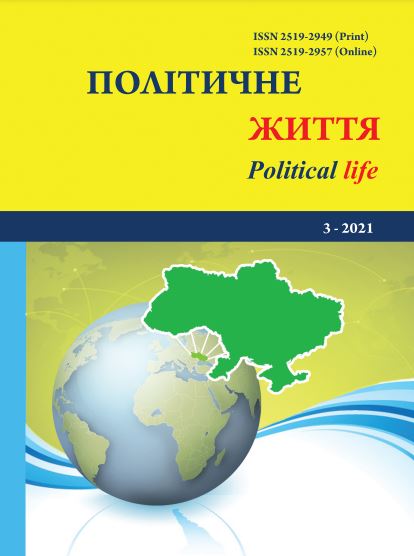Political and Legal Aspects of International Conflicts Through the Prism of Systems of International Relations
DOI:
https://doi.org/10.31558/2519-2949.2021.3.16Keywords:
international conflict; armed conflict; system of international relations; international lawAbstract
The authors attempt to conceptualize approaches to determination of the nature and place of conflicts in international relations, as well as ways to resolve international conflicts in the modern theory of international relations. An international conflict is defined by the authors as an open political clash of two or more states (or other international actors) on the basis of differences or conflicts of interest.
The views of leading theorists of realism, liberalism, and Marxism as directions in the theory of international relations were outlined. It was found that the end of the Cold War created further discussion about the prospects of world politics in the new conditions. During this period, the concepts of F. Fukuyama, S. Huntington, I. Wallerstein appeared, J. Galtung, M. Kaplan, K. Waltz, S. Brown and others expressed their views on the prospects of world politics and the nature of conflicts in the XXI century. Theorists of different scientific political science schools point on the persistence of conflicts in international relations, but their views on the nature of conflicts and the possibility of conflict management are different. The views of theorists on the influence of the structure of international relations system on the nature and intensity of international conflicts are systematized.
The authors note that in the context of the study of international conflicts, the legal aspects of the regulation of international relations are of particular importance. In view of this, the main function of international law is to regulate international relations, the main subjects of which are states. Sovereignty remains the main feature of the state. It is noted that the mechanisms of formation and operation of international law are interstate, not supranational.
It is determined that under modern conditions the attributes of modern international politics are regional crises, hybrid wars, information blockades, which do not contribute to the formation of a stable system of international relations
References
Brown S.International Relations in a Changing Global System: Toward a Theory of World Polity. Boulder CO: Westview Pres, 1992. 190 p.
Fukuyama F. The End of History and the Last Man. London : Penguin, 2020. 464 p.
Galtung J. Peace by Peaceful Means: Peace and Conflict, Development and Civilization (International Peace Research Institute, Oslo (PRIO)). NUC : SAGE Publications Ltd, 1996. 292 p.
Huntington P. Samuel. The Clash of Civilizations and the Remaking of World Order. NYC : Simon & Schuster, 2011. 368 p.
Kaplan M. System and Process in International Politics. ECPR Press, 2005. 260 p.
Morgenthau Hans J. Politics Among Nations. NYC : McGraw-Hill Education, 2005. 752 p.
Wallerstein I. World-Systems Analysis: An Introduction. Durham : Duke University Press, 2004. 128 p.
Waltz K. Theory of International Politics. Long Grove : Waveland Press, 2010. 256 p.
Примуш М.В., Клюжев О.В. Політична Конфліктологія: теорія і практика: навч. посіб. Донецьк, 2011. 144 с.

